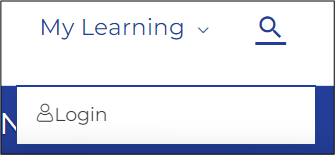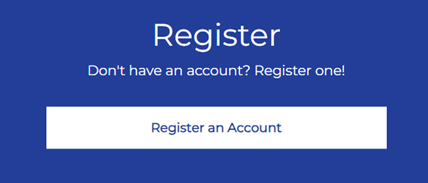Overview
Creating an Inclusive and Welcoming Environment
(Webinar, 2023)
- In this presentation from the March 2023 Advancing Excellence in Sexual and Gender Minority Health Education conference, Dr. Alex Keuroghlian discusses key components of a welcoming and inclusive health care environment for LGBTQIA+ people, and effective teaching techniques for training your colleagues on how to build such environments.
Effective and Affirming Communication
(Webinar, 2023)
- In this presentation from the March 2023 Advancing Excellence in Sexual and Gender Minority Health Education conference, Dr. Jennifer Potter discusses best practices for communicating with patients about sexual orientation, gender identity, and sex development, as well as best practices for teaching these skills to other healthcare professionals and developing a list of resources and teaching techniques for SGM health trainings.
Engaging and Affirming LGBTQIA+ Families in Health Centers
(Publication, 2025)
- The visibility of lesbian, gay, bisexual, transgender, queer, intersex, asexual, and all sexually and gender diverse (LGBTQIA+) families is growing, reflecting the evolving landscape of contemporary society. It is estimated that 5 million American children live with a parent who identifies as LGBTQIA+, and nearly 170,000 children are being raised by same-sex couples. Among transgender adults in the U.S., 15-19% are currently a parent of a child under 18 years old. Given the large number of LGBTQIA+ families with children, it is crucial for health centers to recognize the unique and diverse configurations of families to meet their health care needs. Effectively providing care for LGBTQIA+ families with children requires a commitment to understanding and embracing their distinct experiences and challenges. By becoming more informed, adapting new terminology, and fostering a sense of community, health center care teams can significantly improve care experiences and health outcomes for all patients and families.
Implicit Bias and Power Imbalances
(E-Module, 2022)
- In this module, we will describe how implicit bias and power imbalances across medical education and clinical settings are key factors influencing the quality of medical education experiences for students and clinical care experiences for patients.
Achieving Health Equity for Asexual and Aromantic Patients
(Webinar, 2024)
- Asexual population health is often overlooked in LGBTQIA+ health and healthcare. Among youth and young adults, however, some studies show that bi+ and asexual people comprise the largest sexual minority sub-populations.
Collecting Sexual Orientation and Gender Identity (SOGI) Data
(Webinar, 2023)
- In this presentation from the March 2023 Advancing Excellence in Sexual and Gender Minority Health Education conference, Chris Grasso and Juwan Campbell discuss why and how to collect Sexual Orientation and Gender Identity (SOGI) data, as well as how to implement SOGI data collection at your health center.
Cultural Adaptation of Measures and Tools for SOGI Data Collection
(Publication, 2024)
- This publication was designed as a companion resource to Ready, Set, Go! Guidelines and Tips for Collecting Patient Data on Sexual Orientation and Gender Identity (SOGI) to explain the importance of SOGI data collection to identify and address the unique needs of sexual and gender minority patient populations, with special consideration for culturally and linguistically diverse patients who are part of LGBTQIA+ communities. This guide will help healthcare staff to identify procedures to translate and adapt SOGI data collection questions and patient education materials for multilingual patient populations accurately and affirmatively, with considerations for Spanish-speaking LGBTQIA+ patients as an example. The recommendations in this publication will assist health teams in planning next actions to implement culturally and linguistically affirming practices that are community informed and integrated throughout the health experiences of multilingual, multiethnic, and racially diverse patients.
Transgender/gender diverse trainings
Primary Care for Transgender and Gender Diverse Patients
(Webinar, 2022)
- In this talk from the 2022 Advancing Excellence in Transgender Health Care Conference, Julie Thompson discusses preventative health considerations for Trans and Gender-Diverse individuals.
Trauma Informed Care for Transgender and Gender Diverse Patients
(Webinar, 2022)
- In this talk from the 2022 Advancing Excellence in Transgender Health Care Conference, Dr. Jenny Potter and Samara Grossman discuss trauma informed care for Gender-Diverse patients. By the end of this talk, you will be able to define trauma and its adverse effects on mental health, explain how to address signs and symptoms of trauma as they arise during a clinical encounter, and describe how to use a universal trauma-informed approach to optimize care for Trans and Gender-Diverse patients.
Affirming Care for Transgender and Gender Diverse Children and Adolescents
(E-Module, 2022)
- In this module for pediatric and family medicine care teams, we will identify best and promising practices for transgender and gender diverse (TGD) youth, explore how gender affirming clinical care supports the mental health of TGD youth, and learn how providers can help guide families in accessing psychosocial and community resources to support TGD youth.
Trans and Gender Diverse Older Adults
(Webinar, 2022)
- In this panel from the 2022 Advancing Excellence in Transgender Health Care Conference, three panelists share their lived experience around aging issues in the Trans and Gender-Diverse community.
Integrated Behavioral Health Care for Transgender and Gender Diverse People
(Publication, 2023)
- Integrated behavioral health care cannot eliminate all barriers and health inequities experienced by transgender and gender diverse (TGD) people. It can, however, serve as a bridge to overall wellness, and can fulfill functions associated with primary care, and in doing so, can represent a low-barrier, harm reduction method of meeting patients’ needs. It can provide a setting to address mental health concerns that may arise from the process of negotiating one’s identity as a TGD person, being denied certain forms of health care, or navigating spaces where one’s value is diminished. Integrated behavioral health care can also help to facilitate the initiation and management of gender-affirming hormone therapy, thereby reducing the need for referrals to specialty providers, eliminating wait times, and enhancing patient and provider satisfaction.
Gender-affirming Care for Transgender and Gender Diverse People Experience Homelessness
(Webinar, 2023)
This webinar will highlight unique challenges and best practices to improve gender-affirming care for TGD people experiencing homelessness and housing insecurity. Presenters will provide an overview of the spectrum of housing instability, address screening considerations and data collection for Social Determinants of Health (SDOH) and Sexual Orientation and Gender Identity (SOGI), and offer specific resources to support housing stability, gender affirmation, and other social emotional support services. The session will include a didactic component and case presentations.
Clinical care
Patient-Centered Telehealth for LGBTQIA+ Communities
(Publication 2024)
- This publication is designed to support health centers in using telehealth programs to increase access to patient care and services for LGBTQIA+ people. Telehealth, in which technology is used to provide health care services at a distance, has become an essential approach to providing patient care and services for underserved communities, including LGBTQIA+ people. Telehealth eliminates geographic restrictions, which increases access to providers who can provide culturally affirming and knowledgeable health care for LGBTQIA+ people. Although telehealth has the potential to improve health outcomes for LGBTQIA+ patients, considerations need to be made to ensure equitable access. The purpose of this publication is to educate health center staff on how to reduce barriers to LGBTQIA+ patient care by improving telehealth programming.
Care Considerations for Children of LGBTQIA+ Families
(Webinar, 2024)
- In this webinar, we will explore the significant and growing population of children in LGBTQIA+ families in the United States. With diverse arrangements and dynamics, clinicians must be attuned to understanding the unique histories and experiences of LGBTQIA+ families.
Caring for LGBTQIA+ Youth at Health Centers
(Webinar, 2024)
- Presented by the National LGBTQIA+ Health Education Center, this webinar will focus on both disparities and resilience among LGBTQIA+ youth, including practical strategies for reaching and engaging LGBTQIA+ youth into primary care and behavioral health care. In addition to learning of health risks faced by LGBTQIA+ youth, webinar participants will become more familiar with LGBTQIA+ youth culture and will learn of ways to forge trusting relationships and create welcoming environments.
Housing, Health, and LGBTQIA+ Older Adults
(Publication, 2021)
- This publication provides health centers with promising practices for supporting LGBTQIA+ older adults with their housing and related health care needs, including screening for homelessness and housing, supporting aging in place, providing affirming referrals for housing and supportive services, and offering inclusive health care environments.
Healthcare for LGBTQIA+ Older Adults
(E-Module, 2021)
- This module provides an overview of the unique medical, behavioral health, and social service needs of LGBTQIA+ older adults, as well as strategies to address these needs.
Culturally Responsive Depression Screening and Referral for LGBTQIA+ Patients
(Webinar, 2024)
- This webinar aims to increase the capacity of health centers to conduct culturally responsive depression and mental health screening and referral for LGBTQIA+ communities. This webinar will support health centers in population needs assessment and management, community needs and resource mapping, and clinical effectiveness of care for LGBTQIA+ patients, with an emphasis on social determinants of health.
Culturally Responsive Cervical and Breast Cancer Screening for LGBTQIA+ Communities
(Webinar, 2024)
- This webinar will discuss performing cervical and breast cancer screening exams in a way that is affirming for LGBTQIA+ patients. We will review patient communication, preparation and completion of the exams, and gender affirming clinical documentation. This session will support health centers in population needs assessment and management, community needs and resource mapping, and clinical effectiveness of care within the population health and social determinants of health domain.
Affirming Reproductive Health Care for LGBTQIA+ People
(Webinar, 2022)
- This webinar is designed to help health centers understand the unique needs of LGBTQIA+ people when seeking reproductive health care. Participants will explore the unique barriers to reproductive health care for LGBTQIA+ people and discover promising practices for providing affirming pre-conception counseling and OBGYN and reproductive health care, including strategies for health navigation, and considerations for LGBTQIA+ patients who seek to raise children.
Culturally Responsive Oral Health Care for LGBTQIA+ People
(Webinar, 2024)
- Research suggests that LGBTQIA+ people are more likely to rate their oral health care unfavorably compared to their non-LGBTQIA+ peers. In this webinar we will discuss delivering responsive dental health care for LGBTQIA+ communities, including care for people with HIV.
Disaster Equity: Preparedness, Response, and Recovery for LGBTQIA+ Patients of Health Center
(Publication, 2024)
- LGBTQIA+ people exist in all communities and are incredibly diverse in terms of race, ethnicity, sexual orientation, gender identity, socioeconomic status, ability, etc. Importantly, LGBTQIA+ people are underrepresented in disaster and climate infrastructure and policies yet are overrepresented in populations that are known to be the most impacted by natural disasters—such as those burdened with chronic illness, who are unhoused, or have limited access to healthcare.
Low Threshold Substance Use Support for LGBTQIA+ Communities
(Webinar, 2024)
- In collaboration with the National Health Care for the Homeless Council, this webinar will discuss innovative low-barrier, patient-centered models of SUD treatment that can be integrated into health centers and can effectively engage LGBTQIA+ communities and people experiencing homelessness. Approaches will include same-day and home induction of medications for opioid use disorder, long-acting injectables, and harm reduction principles.
How to create an account on the National LGBTQIA+ Education Center website
- Visit The Fenway Institure webpage and find the “My Learning” dropdown menu and click “login”
- Click “Register an Account” on the right side of the pop-up
- Create a username and fill in the rest of the information boxes – double check that your email is spelled correctly!
- A link will be sent to the email you signed up with – check your spam/junk folders if you do not see the email
- Click the first hyperlink in the email
- Set your password
- If you have any trouble, please email education@fenwayhealth.org for assistance


